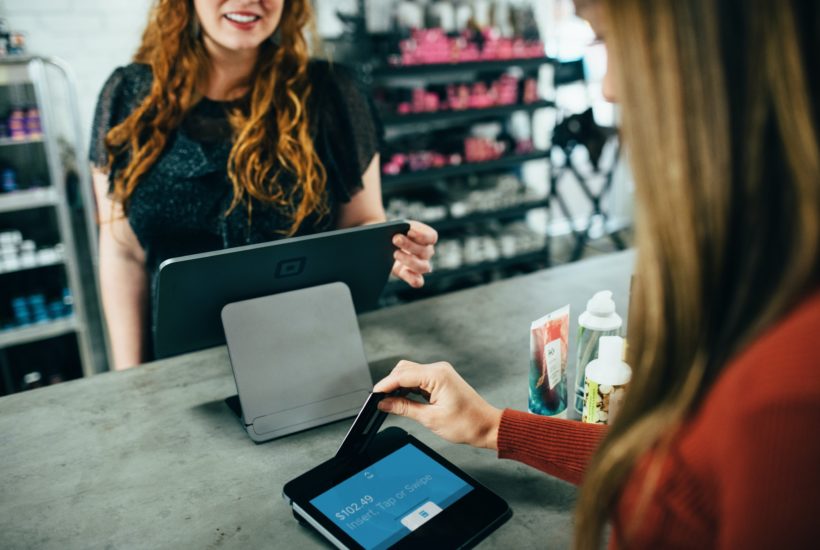Featured
Paylib targets 25 million users by the end of 2021
Since the beginning of the health crisis, the number of fintech companies’ customers has tripled, with a 30% increase in usage. The Paylib mobile payment application currently has 15 million subscribers. At the beginning of 2020, Paylib claimed a figure of 5 transactions per month. Since the crisis, the number of subscribers has been multiplied by three and the use by each has increased by 30%

Paylib is gaining momentum. On November 26th, the mobile payment solution announced that three new banks – Crédit Mutuel, CIC and Bred – will offer its “Paylib among friends” functionality. “These three players represent the 20% of the market that we were missing,” confided to L’Agefi Vincent Duval, CEO of Paylib.
Launched in 2013, the fintech company has managed to convince all the major French banks to use its solution. Only HSBC France, busy with a disposal project, is not part of the lot. For its part, the BPCE group decided last June to stop contactless payment via Paylib, but to keep payment between friends.
Read more about the fintech company Paylib and find the latest financial news in the world with our companion app, Born2Invest.
Like most mobile payment applications, Paylib took advantage of the health crisis
After the containment phases, average usage is 8 transactions per month per asset (6.5 for in-store payment and 1.5 for sending money between people), which represents half the usage of a bank card.
At the beginning of 2020, Paylib claimed a figure of five transactions per month. Since the crisis, the number of subscribers has been multiplied by three and the use by each has increased by 30%. “We have 15 million registrants and we have the ambition to reach 20 or 25 million by the end of 2021,” explained the head of the fintech company
Payment in stores has been “boosted” by the health crisis. “The increase in the ceiling for contactless payment cards from $36 (€30) to $60 (€50) has not hindered the use of mobile payment,” explained his boss. In-store Paylib is only available on Android “because Apple locks the NFC antenna for its own Apple Pay application,” said his boss.
A recently tabled regulation bill
“When we will be able to access the iPhone’s NFC antenna, we will mechanically double the usage and number of Paylib users in-store,” Vincent Duval said. To achieve that, he is banking in particular on a bill tabled in mid-November by LREM deputy Pierre-Alain Raphan, aimed at regulating contactless mobile payment. “This bill will allow the development of European alternatives to Gafa, it’s a good initiative which is very pragmatic”, he added.
The growth of its e-commerce activity has continued during the pandemic “but without seeing the same acceleration as for Paylib in stores or ‘Paylib with friends,'” explained the boss of the fintech company which claims 4,000 e-commerce customers. “The exceptional opening of Paylib between friends to merchants for ‘click and collect’ helps local shops to support their activity with this form of digitalization,” he added.
According to a survey by App Annie, a global provider of mobile data and analysis, Paypal was the most downloaded finance application during the month of August in France, followed by Tricount. Lydia came in 5th position and Paylib in 9th.
Moreover, if some of its competitors, including Paypal, bet on cryptocurrencies, Paylib prefers to remain discreet on this subject. “If tomorrow there is a digital euro, we will be able to use the same customer interface but it is not a necessity to offer our services which are already secure and instantaneous,” explained Vincent Duval. “As such, the blockchain is a technology that we do not rule out, but it is not essential for us to offer people the payment and money exchange services corresponding to their needs.”
__
(Featured image by Blake Wisz via Unsplash)
DISCLAIMER: This article was written by a third party contributor and does not reflect the opinion of Born2Invest, its management, staff or its associates. Please review our disclaimer for more information.
This article may include forward-looking statements. These forward-looking statements generally are identified by the words “believe,” “project,” “estimate,” “become,” “plan,” “will,” and similar expressions. These forward-looking statements involve known and unknown risks as well as uncertainties, including those discussed in the following cautionary statements and elsewhere in this article and on this site. Although the Company may believe that its expectations are based on reasonable assumptions, the actual results that the Company may achieve may differ materially from any forward-looking statements, which reflect the opinions of the management of the Company only as of the date hereof. Additionally, please make sure to read these important disclosures.
First published in L’AGEFI, a third-party contributor translated and adapted the article from the original. In case of discrepancy, the original will prevail.
Although we made reasonable efforts to provide accurate translations, some parts may be incorrect. Born2Invest assumes no responsibility for errors, omissions or ambiguities in the translations provided on this website. Any person or entity relying on translated content does so at their own risk. Born2Invest is not responsible for losses caused by such reliance on the accuracy or reliability of translated information. If you wish to report an error or inaccuracy in the translation, we encourage you to contact us.

-

 Business1 week ago
Business1 week agoDebt-Fueled Markets, Zombie Corporations, and the Coming Reckoning
-

 Impact Investing4 days ago
Impact Investing4 days agoGlobal Energy Shift: Record $2.2 Trillion Invested in Green Transition in 2024
-

 Fintech2 weeks ago
Fintech2 weeks agoPayrails Secures $32M to Streamline Global Payments
-

 Crowdfunding7 hours ago
Crowdfunding7 hours agoDolci Palmisano Issues Its First Minibond of the F&P “Rolling Short term” Program
























